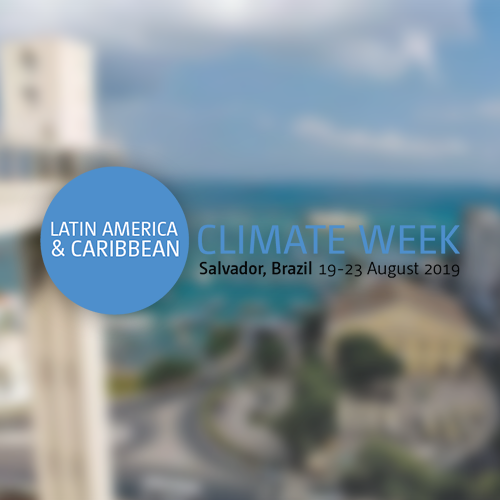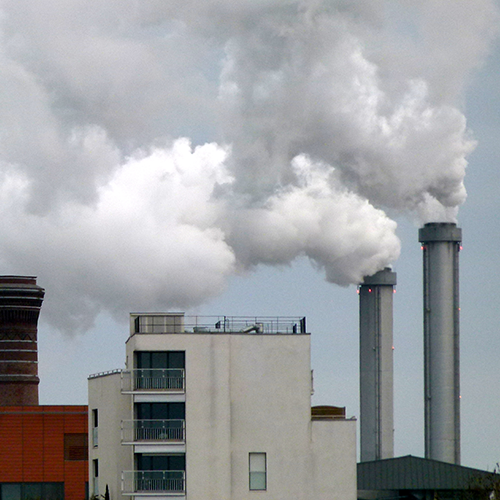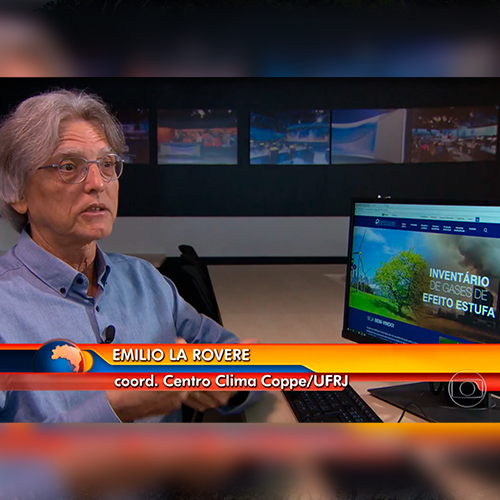Accessibility Tools
 Pesquisadores da Coppe/UFRJ, da Fundación Ambiente y Recursos Naturales (Argentina) e Iniciativa Climática de México apresentam nesta quarta-feira, 21 de agosto, em Salvador, o estudo “Acelerando a Transição Energética na América Latina”, que traz recomendações sobre como Argentina, Brasil e México podem se tornar líderes regionais e globais na luta contra as mudanças climáticas e na adoção de uma transição energética socialmente justa.
Pesquisadores da Coppe/UFRJ, da Fundación Ambiente y Recursos Naturales (Argentina) e Iniciativa Climática de México apresentam nesta quarta-feira, 21 de agosto, em Salvador, o estudo “Acelerando a Transição Energética na América Latina”, que traz recomendações sobre como Argentina, Brasil e México podem se tornar líderes regionais e globais na luta contra as mudanças climáticas e na adoção de uma transição energética socialmente justa.
Dentre as principais recomendações, estão: a elaboração de uma estratégia de descarbonização setorial e de longo prazo; a eliminação dos subsídios aos combustíveis fósseis e redirecionamento dos investimentos para as fontes de energia renováveis; avaliar a implementação de um imposto progressivo sobre os combustíveis fósseis com base no custo social e ambiental do carbono; e a criação de um plano nacional para aumentar a geração distribuída de energia solar.
Entre junho de 2018 e junho de 2019, pesquisadores das três instituições analisaram como os três países estão lidando com a mudança climática no setor de energia, comparando o processo de transição energética em cada país. A transição energética no Brasil será apresentada pelo pesquisador William Wills, do Centro de Estudos Integrados sobre Meio Ambiente e Mudanças Climáticas (Centro Clima), laboratório coordenado pelo professor Emilio Lèbre La Rovere, do Programa de Planejamento Energético da Coppe, que participará dos painéis de abertura e encerramento do evento.
O documento de síntese será apresentado e discutido pelos autores dos três países na Climate Week em Salvador, no dia 21 de agosto. O Instituto Clima e Sociedade - iCS fará a moderação do evento. O texto sumariza ainda os cenários, desafios e incertezas identificados pela iniciativa global “Climate Transparency”, na 4ª edição do relatório Brown to Green, o qual fornece, por meio de mais de 80 indicadores, informação concisa e comparável sobre a ação de mitigação, financiamento e vulnerabilidade dos países do G20. O Centro Clima elaborou o capítulo sobre o Brasil deste estudo.
Climate Transparency é uma parceria global de 14 instituições de pesquisa e ONGs em mudança do clima da maior parte dos países do G20. A parceria tem como missão compartilhada estimular uma "corrida ao topo" na ação climática do G20 para direcionar os investimentos para tecnologias de carbono zero através de maior
transparência.
A apresentação do relatório será feita na sala SDG9 da Cidade do Clima, na Av. Luis Viana Filho, s/n, Salvador, Bahia, das 13h30 às 14h20.
Clique AQUI para conferir mais informações sobre o lançamento do Brown to Green Report, que será apresentado pelo pesquisador William Wills, do CentroClima/COPPE/UFRJ.
Clique AQUI para conferir Brown to Green Report de 2018.
Mais informações podem ser encontradas no site do Climate Transparency.
 Foi defendida no PPE em 25 de junho de 2019, como um produto acadêmico de uma linha de pesquisa do Centro Clima, a tese de doutorado de Saulo Loureiro, sob o título “Mitigação das Emissões dos Gases de Efeito Estufa pela Implementação de Políticas Públicas de Resíduos Sólidos e Mudanças Climáticas no Brasil e no Estado e na Cidade do Rio de Janeiro”. Saulo Loureiro é graduado em Engenharia Civil pela UFRJ (1999), Mestre em Engenharia Civil, área de concentração em Geotecnia Ambiental, pelo Programa de Engenharia Civil da COPPE/UFRJ (2005). Doutorando em Planejamento Ambiental pelo Programa de Planejamento Energético da COPPE/UFRJ. Pesquisador e Tecnologista em Metrologia e Qualidade do INMETRO, Auditor-líder de acreditação, Pesquisador e Consultor do GETRES (Grupo de Estudo de Resíduos Sólidos) e do CENTRO CLIMA (Centro de Estudos Integrados sobre Meio Ambiente e Mudanças Climáticas), da COPPE/UFRJ. Possui experiência nas áreas de Engenharia Civil, Engenharia Ambiental, Qualidade, Avaliação da Conformidade, Auditorias de Sistemas de Gestão, Mudanças Climáticas, Inventários de Emissões Antrópicas de Gases do Efeito Estufa e Estudos de Cenários de Mitigação de Impactos Ambientais.
Foi defendida no PPE em 25 de junho de 2019, como um produto acadêmico de uma linha de pesquisa do Centro Clima, a tese de doutorado de Saulo Loureiro, sob o título “Mitigação das Emissões dos Gases de Efeito Estufa pela Implementação de Políticas Públicas de Resíduos Sólidos e Mudanças Climáticas no Brasil e no Estado e na Cidade do Rio de Janeiro”. Saulo Loureiro é graduado em Engenharia Civil pela UFRJ (1999), Mestre em Engenharia Civil, área de concentração em Geotecnia Ambiental, pelo Programa de Engenharia Civil da COPPE/UFRJ (2005). Doutorando em Planejamento Ambiental pelo Programa de Planejamento Energético da COPPE/UFRJ. Pesquisador e Tecnologista em Metrologia e Qualidade do INMETRO, Auditor-líder de acreditação, Pesquisador e Consultor do GETRES (Grupo de Estudo de Resíduos Sólidos) e do CENTRO CLIMA (Centro de Estudos Integrados sobre Meio Ambiente e Mudanças Climáticas), da COPPE/UFRJ. Possui experiência nas áreas de Engenharia Civil, Engenharia Ambiental, Qualidade, Avaliação da Conformidade, Auditorias de Sistemas de Gestão, Mudanças Climáticas, Inventários de Emissões Antrópicas de Gases do Efeito Estufa e Estudos de Cenários de Mitigação de Impactos Ambientais.
Confira o resumo da tese de doutorado abaixo:
“Esta pesquisa apresenta os potenciais de mitigação de emissões de gases do efeito estufa (GEE) pelo aprimoramento da gestão dos resíduos sólidos urbanos e pela política climática no Brasil, no Estado do Rio de Janeiro e na Cidade do Rio de Janeiro, de 2020 a 2050. As bases utilizadas foram as comunicações nacionais do Brasil assim como os inventários de emissões de GEE para as três áreas geográficas pesquisadas, através de metodologia elaborada a partir de adaptação à realidade brasileira das Diretrizes para Inventários Nacionais de GEE, do Painel Intergovernamental sobre Mudanças Climáticas. Foram construídos cenários de emissões de GEE até 2050, em função de estimativas sobre a evolução de parâmetros socioeconômicos e tecnológicos relacionados ao tratamento de resíduos. Foram calculados os potenciais de abatimento das emissões nos cenários e seus respectivos custos marginais, assim como os potenciais de ganhos com a geração de energia a partir do tratamento do lixo e respectivos créditos de carbono. Os resultados mostram que a implementação das políticas públicas de resíduos sólidos e, sobretudo, as ações relacionadas à mitigação das emissões de GEE poderão criar grandes oportunidades para viabilizar a expansão da infraestrutura do tratamento dos resíduos sólidos nos municípios brasileiros nas próximas décadas.”
 No dia 1 de abril de 2019, foi defendida no PPE a dissertação de mestrado da aluna Fernanda Hargreaves, como um produto acadêmico de uma linha de pesquisa do Centro Clima, sob o título “Opções de Mitigação das Emissões de Gases de Efeito Estufa na Indústria de Petróleo e Gás Natural Brasileira”. Fernanda Hargreaves é graduada em Oceanografia pela Universidade do Estado do Rio de Janeiro (1999), possui experiência profissional com licenciamento ambiental, sensoriamento remoto, modelagem de dispersão de óleo e cascalho, elaboração de estudos de impacto ambiental, processamento e análise de dados oceanográficos e auditorias internas.
No dia 1 de abril de 2019, foi defendida no PPE a dissertação de mestrado da aluna Fernanda Hargreaves, como um produto acadêmico de uma linha de pesquisa do Centro Clima, sob o título “Opções de Mitigação das Emissões de Gases de Efeito Estufa na Indústria de Petróleo e Gás Natural Brasileira”. Fernanda Hargreaves é graduada em Oceanografia pela Universidade do Estado do Rio de Janeiro (1999), possui experiência profissional com licenciamento ambiental, sensoriamento remoto, modelagem de dispersão de óleo e cascalho, elaboração de estudos de impacto ambiental, processamento e análise de dados oceanográficos e auditorias internas.
Confira o resumo da dissertação de mestrado abaixo:
“A indústria de petróleo e gás natural tende a se desenvolver nos próximos anos, para que não haja um aumento proporcional nas emissões de gases de efeito estufa (GEE), esta dissertação estudou opções de mitigação das emissões fugitivas.
Primeiramente foram estudadas as principais fontes de emissões de GEE na indústria, sendo em seguida propostas sete opções de mitigação, agregadas em quatro diferentes cenários de mitigação, sendo um tendencial, um cenário com medidas focadas na redução de queimas e perdas, um cenário com medidas para redução de fugitivas não intencionais e o último com tecnologias voltadas para captura e armazenamento de carbono (CCS).
De um modo geral, as opções de mitigação estudadas são viáveis, principalmente através de medidas de comando e controle, da monetização do gás natural e taxa de carbono, que geraria uma redução de sua queima, além dos vazamentos intencionais ou não.
As medidas associadas à Exploração e Produção são as mais efetivas, correspondendo a 89% do potencial de redução de emissões de GEE na indústria de petróleo e gás natural em 2030 e 77% em 2050.”.
Clique AQUI para acessar a dissertação de mestrado.
 Nos dias 27 e 28 de julho, os pesquisadores do Centro Clima, Carolina Dubeux e William Wills, estiveram na Bulgária, a convite do Instituto Clima e Sociedade, para participar da Reunião Anual dos Stakeholders da Global View e Carbon Transparency Initiative.
Nos dias 27 e 28 de julho, os pesquisadores do Centro Clima, Carolina Dubeux e William Wills, estiveram na Bulgária, a convite do Instituto Clima e Sociedade, para participar da Reunião Anual dos Stakeholders da Global View e Carbon Transparency Initiative.
As sessões do evento discutiram os caminhos atuais e futuros de emissões mundiais de GEE com uma série de painéis que tratou das expectativas regionais sobre descarbonização em meados do século e progressos e lacunas em relação às metas de temperatura do Acordo de Paris. Grupos de discussão focaram em possíveis ganhos de escala para soluções já encontradas e que estejam subestimadas (com prêmios para soluções promissoras). Houve sessões sobre temas como as metas de desenvolvimento sustentável e o papel da equidade e governança para viabilizar a ação climática, além de apresentação dos primeiros resultados da Carbon Transparency Initiative (CTI) com o uso de modelos atualizados CTI 2050 para alguns países (Brasil, China, UE, Índia, México e os EUA).
A CTI é um projeto da Fundação ClimateWorks que procura criar um sistema transparente de desenvolvimento de cenários baseados em políticas, tendências de descarbonização e investimentos relacionados à energia. Busca revelar o progresso na construção de uma economia de baixo carbono, a partir da construção de indicadores baseado em análise dos drivers que modal as tendências de emissão.
William apresentou as perspectivas brasileiras no painel “Perspectivas Regionais - Caminhos da Metade do Século - drivers, barreiras, estratégias e ambiente político". Carolina apresentou experiências bem-sucedidas em AFOLU no Brasil como base para a identificação de opções que possam ser ampliadas.
Para mais informações, clique AQUI.
 O Professor Dr. Emilio La Rovere, coordenador do Laboratório Interdisciplinar do Meio Ambiente e do Centro Clima da COPPE/UFRJ, concedeu uma entrevista a respeito do tema mudanças climáticas à TV Globo que foi ao ar no programa Bom Dia Brasil, no dia 1º de Julho de 2019. O assunto focado em um quadro do noticiário foi a alta nas temperaturas de algumas regiões brasileiras que está causando espanto na comunidade. A explicação para isso é que o inverno brasileiro está sendo afetado pelo fenômeno do El Niño, o que favorece a amplitude térmica e promove temperaturas mais altas do que o esperado para a estação. No entanto, não é apenas isso que deixa o nosso inverno com cara de verão.
O Professor Dr. Emilio La Rovere, coordenador do Laboratório Interdisciplinar do Meio Ambiente e do Centro Clima da COPPE/UFRJ, concedeu uma entrevista a respeito do tema mudanças climáticas à TV Globo que foi ao ar no programa Bom Dia Brasil, no dia 1º de Julho de 2019. O assunto focado em um quadro do noticiário foi a alta nas temperaturas de algumas regiões brasileiras que está causando espanto na comunidade. A explicação para isso é que o inverno brasileiro está sendo afetado pelo fenômeno do El Niño, o que favorece a amplitude térmica e promove temperaturas mais altas do que o esperado para a estação. No entanto, não é apenas isso que deixa o nosso inverno com cara de verão.
O Prof. Emilio, em sua fala, salienta o fato de que essas mudanças climáticas vieram para ficar. Há uma tendência global de que os invernos sejam mais curtos, as primaveras e os verões sejam mais quentes e que a temperatura média continue aumentando. Isso ocorre por conta da emissão de gases de efeito estufa na atmosfera, que proporcionam o aquecimento global. Para o Professor, é importante se adaptar ao novo padrão climático que surge, pois representa uma nova realidade.
Um caso que ilustra essa necessidade de adequação são as fortes chuvas que acometeram a cidade do Rio de Janeiro no início deste ano. Os fortes temporais trouxeram à tona os diversos problemas estruturais da cidade. Assim, surge a necessidade de programar soluções que trabalhem com estratégias de curto, médio e longo prazo para evitar que mais tragédias continuem acontecendo.
Confira AQUI o programa na íntegra.
